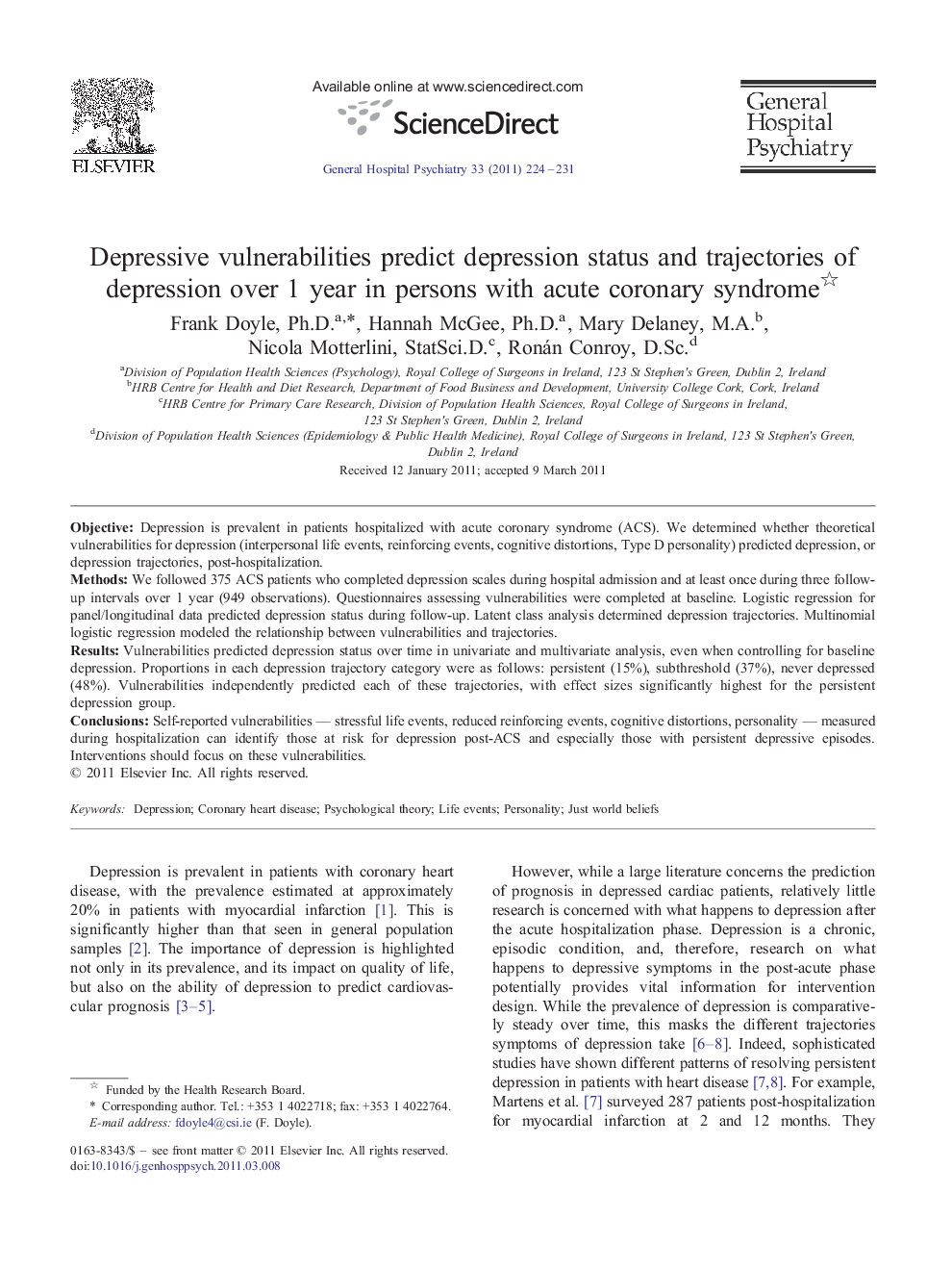| Article ID | Journal | Published Year | Pages | File Type |
|---|---|---|---|---|
| 6082420 | General Hospital Psychiatry | 2011 | 8 Pages |
ObjectiveDepression is prevalent in patients hospitalized with acute coronary syndrome (ACS). We determined whether theoretical vulnerabilities for depression (interpersonal life events, reinforcing events, cognitive distortions, Type D personality) predicted depression, or depression trajectories, post-hospitalization.MethodsWe followed 375 ACS patients who completed depression scales during hospital admission and at least once during three follow-up intervals over 1 year (949 observations). Questionnaires assessing vulnerabilities were completed at baseline. Logistic regression for panel/longitudinal data predicted depression status during follow-up. Latent class analysis determined depression trajectories. Multinomial logistic regression modeled the relationship between vulnerabilities and trajectories.ResultsVulnerabilities predicted depression status over time in univariate and multivariate analysis, even when controlling for baseline depression. Proportions in each depression trajectory category were as follows: persistent (15%), subthreshold (37%), never depressed (48%). Vulnerabilities independently predicted each of these trajectories, with effect sizes significantly highest for the persistent depression group.ConclusionsSelf-reported vulnerabilities - stressful life events, reduced reinforcing events, cognitive distortions, personality - measured during hospitalization can identify those at risk for depression post-ACS and especially those with persistent depressive episodes. Interventions should focus on these vulnerabilities.
